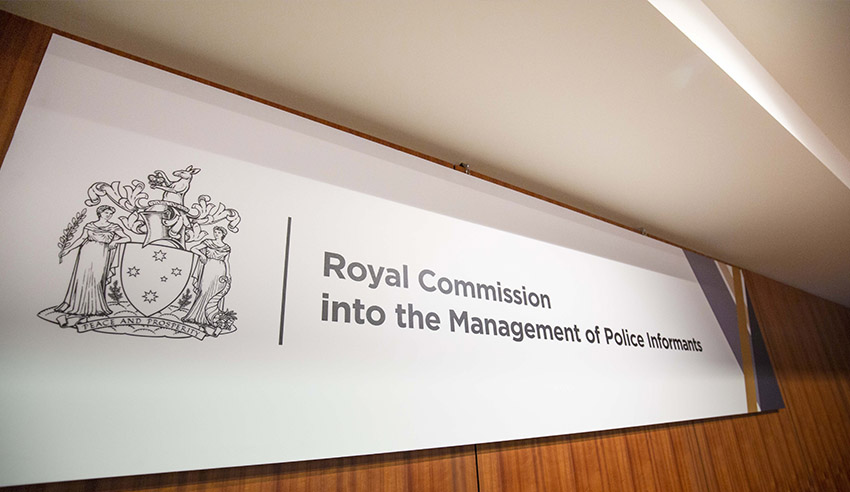Between testimonies, millions of pages of evidence and ongoing secrecy, the Royal Commission into the Management of Police Informants (RCMPI) has opened the door to more questions, likely to be unanswered in the near future.

Speaking recently on The Lawyers Weekly Show, editor Emma Ryan and now former Lawyers Weekly journalist Grace Ormsby discussed the key takeaways, the questions still yet to be answered and predictions for what is still yet to come.
“We’re still wrapped up in so much bureaucracy, and administration and paperwork.”
Despite the RCMPI’s recent radio silence, there have been some key takeaways from the last few months. One such development was commissioner Margaret McMurdo’s progress report, which detailed the first six months of the inquiry.
Another is the subsequent release of Faruk Orman, who was represented by informant Nicola Gobbo during her time as a human source for Victoria Police.
“They’re saying that the information she provided is a miscarriage of justice to his case and that consequently saw his appeal to be released heard,” Ms Ryan explained.
Ms Ryan added that the process of appeals has become heavily centred on the ethics of the Lawyer X scandal and the responsibility to act in the interest of clients.
“Very clearly in one of the transcripts that’s been made available to the public, Gobbo does admit that she knew the severity of her actions in acting as a human source. She said very clearly ‘I’ve chucked ethics and legal professional privilege out the window’,” she said.
Despite Ms Gobbo’s role in the matter, Ms Ormsby said there are questions that need to be asked of Victoria Police, having recruited Ms Gobbo despite concerns for safety and the violation of her legal professional privilege.
“Every time we’ve had a Victoria Police member up on that stand, there’s something that we’re not knowing, and we’re not hearing about. That still seems to me like there are people being protected. It seems like there are people who probably do know that they did the wrong thing and do not want to admit that they’ve done the wrong thing,” she said.
On this, Ms Ormsby pointed out that there should not have been a delay in supplying the commission with records of the case, given that this began happening in 1993 “and was not 50 or 60 years ago before computers were a mainstay.”
“I think there is so much that still needs to come out,” she said. “We’ve still got probably the most important four years really of the timeline that we’re looking at to go through and recommendations coming out from this.”
Ms Ormsby added that there should be a changeup in the way that the police force is working with lawyers, and vice versa. The grey areas around standards lawyers should work to and the responsibility to uphold the law should be more defined.
“There does need to be some form of inquiry into the way that the police force operates Australia-wide, and the training that goes along with that, but then also we need to be looking at it from the legal perspective, and nutting out what the issues are within our own guidelines, and our standards of conduct we expect lawyers to abide by.”
